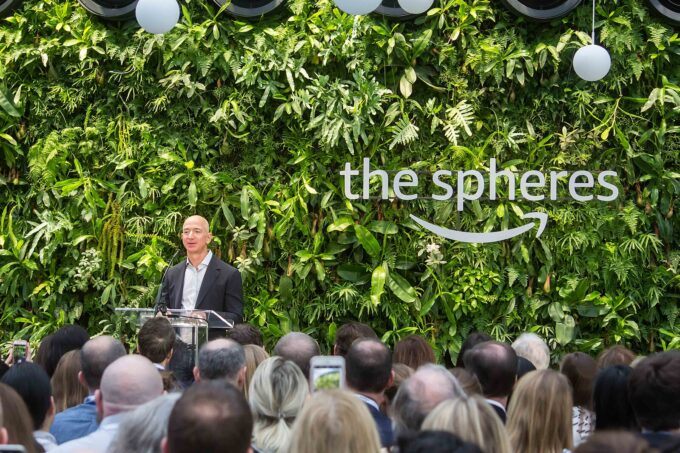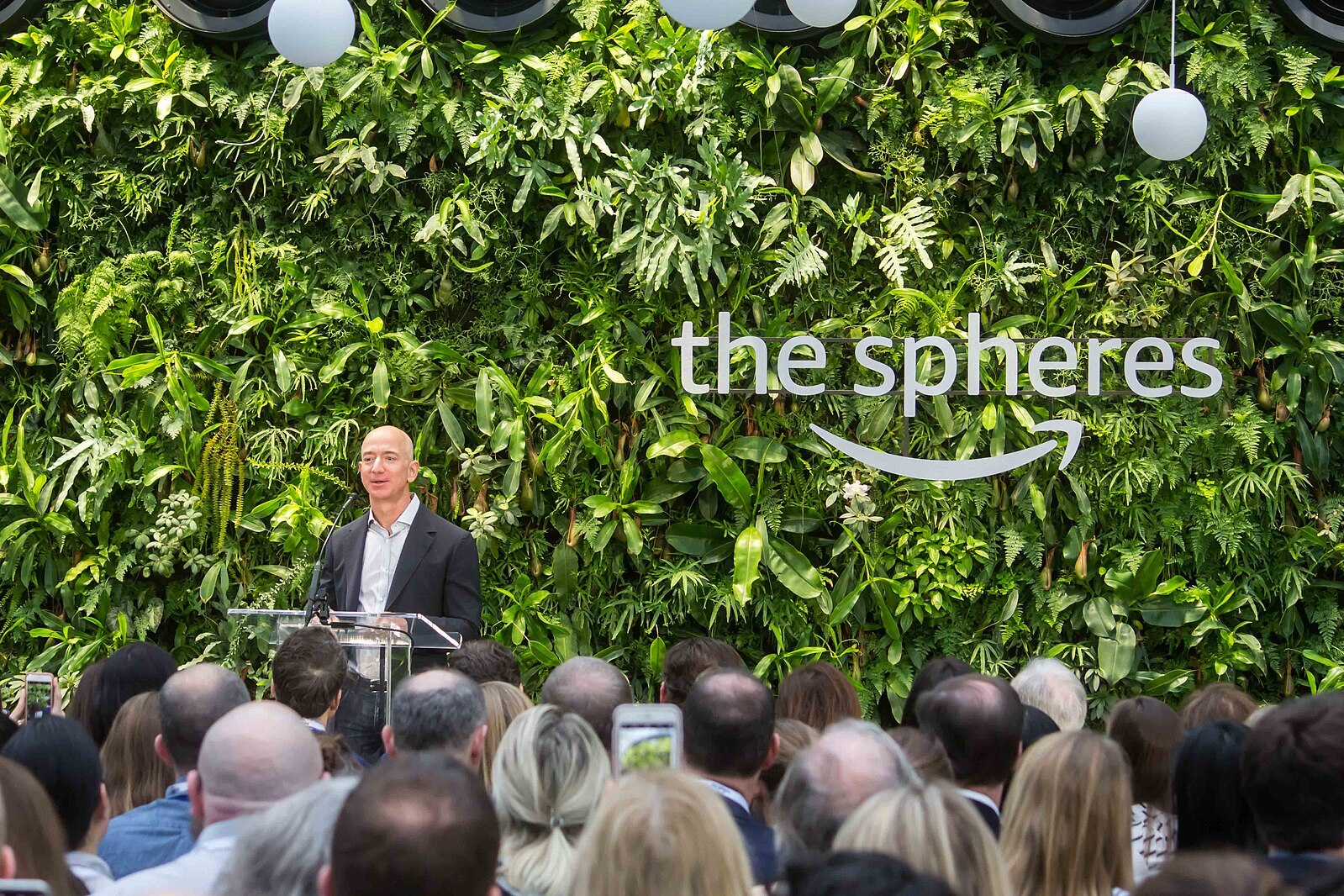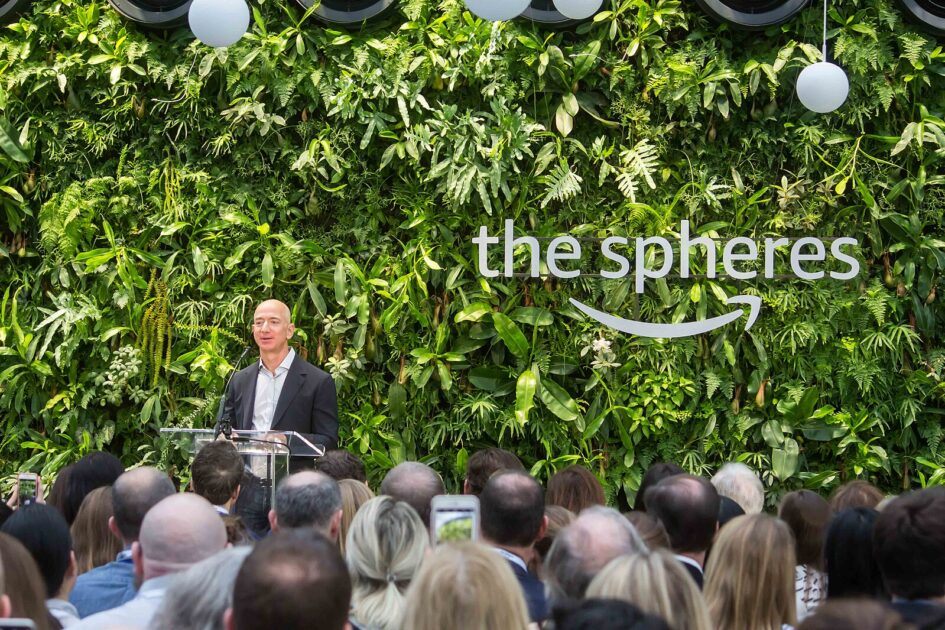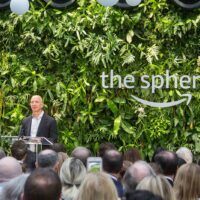






























































Photograph Source: Seattle City Council – CC BY 2.0
Top Amazon executives have received huge tax windfalls from the 2017 tax reform and stand to reap even bigger windfalls from the new tax legislation Congress is currently crafting.
A new report from the Institute for Policy Studies, the Athena Coalition, and PowerSwitch Action provides detailed analysis on how our rigged tax system has expanded the massive fortunes of Amazon founder Jeff Bezos and CEO Andrew Jassy while leaving ordinary workers and small businesses behind.
Jeff Bezos has reaped billions from the capital gains tax double standard
When the Republican-controlled Congress passed the last major tax bill in 2017, they failed to fix one of the most perverse aspects of our tax code: the deeply discounted rate on income from wealth versus income from work. Because the rich get most of their money from investments, millions of teachers and firefighters wind up paying a higher tax rate than many billionaires.
Amazon founder Jeff Bezos has sold $36.7 billion worth of his company’s stock since the 2017 reform. If that law had equalized the 20 percent capital gains rate with the 37 percent top marginal rate on ordinary income, he would’ve owed Uncle Sam $6.2 billion more in taxes on those sales. To put that sum in perspective, it would be enough to cover the cost of nearly 650,000 public housing units for a year.
Current Congressional leaders appear eager to perpetuate this perversity.
Corporate and top marginal tax rate cuts are boons to executives
In the last tax reform go-round, Congress cut the top marginal income tax rate from 39.6 percent to 37 percent. This didn’t affect Bezos much because he receives a modest annual salary as Amazon’s executive chair.
Amazon CEO Andrew Jassy, on the other hand, enjoyed a significant windfall. Based solely on the $263 million in salary and vested stock he pocketed between 2018 and 2024, we estimate that Jassy saved roughly $6.6 million from this rate reduction. That amount could’ve covered annual child care costs for more than 600 families.
The 2017 reform slashed the corporate tax rate from 35 percent to 21 percent. Amazon exploited various tax breaks to pay just a 5.1 percent average effective rate in the first four years under the law. This freed up resources for $6 billion in stock buybacks, a financial maneuver that artificially inflates the value of executive stock-based pay.
Amazon executives’ families stand to gain massive rewards from weakening of the estate tax
In 2017, Congress doubled the amount of wealth that is exempt from the estate tax, further weakening our only real curb on inter-generational dynastic wealth. Currently, this tax applies to fortunes in excess of $28 million per couple.
If Congress extends this weakened estate tax, Bezos and Jassy’s heirs would enjoy a one-time savings of $5.6 million. The Senate Majority Leader and many other Republicans want to eliminate the estate tax entirely. If they succeed, Jassy’s heirs could avoid about $199 million in tax and the Bezos family could avoid about $86 billion, based on recent estimates of their net worth.
What about typical Amazon workers?
Half of Amazon workers made less than $37,181 in 2024. These meager wages likely kept their income tax liability quite low — especially if they have children. But it’s a different story with payroll taxes.
The 2017 tax reform failed to address the regressive nature of these taxes, particularly those on Social Security, which are capped at a set amount ($168,600 in 2024), no matter how much money you make. Amazon’s CEO contributed just 0.4 percent of his taxable pay to Social Security last year. As a share of compensation, the company’s median-paid worker contributed 6.2 percent — 15 times as much as Jassy.
Amazon offers a 401(k) plan with matching funds, but this benefit is meaningless for the vast majority of its workforce. Of the 1.2 million Amazon employees participating in this tax-sheltered retirement program in 2023, fully 72 percent had zero balances, suggesting they could not afford to put any money aside in these accounts.
This tale of Amazon and our tax code is just one example of the excessive influence of the ultra-rich over our nation’s economic policies. While working families are bracing for potentially drastic cuts to life-saving programs like food stamps, Medicaid, and Medicare, big corporations and their top brass are well-positioned to reap more tax giveaways that will make them even richer and more powerful.
The tax debate has huge implications not only for corporate executives and workers, but also for the future of our democracy.
The post The Tax Debate: What’s In it for Jeff Bezos and Amazon CEO Andrew Jassy appeared first on CounterPunch.org.
This content originally appeared on CounterPunch.org and was authored by Sarah Anderson.